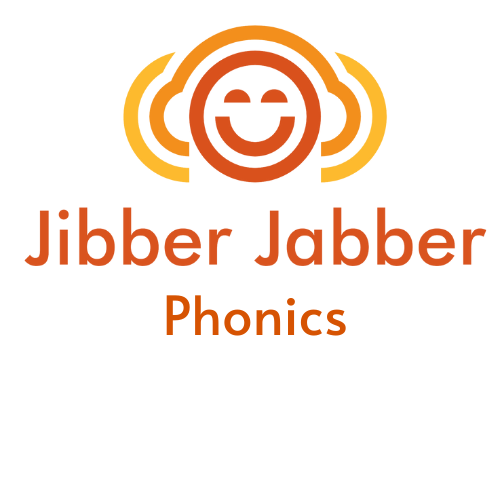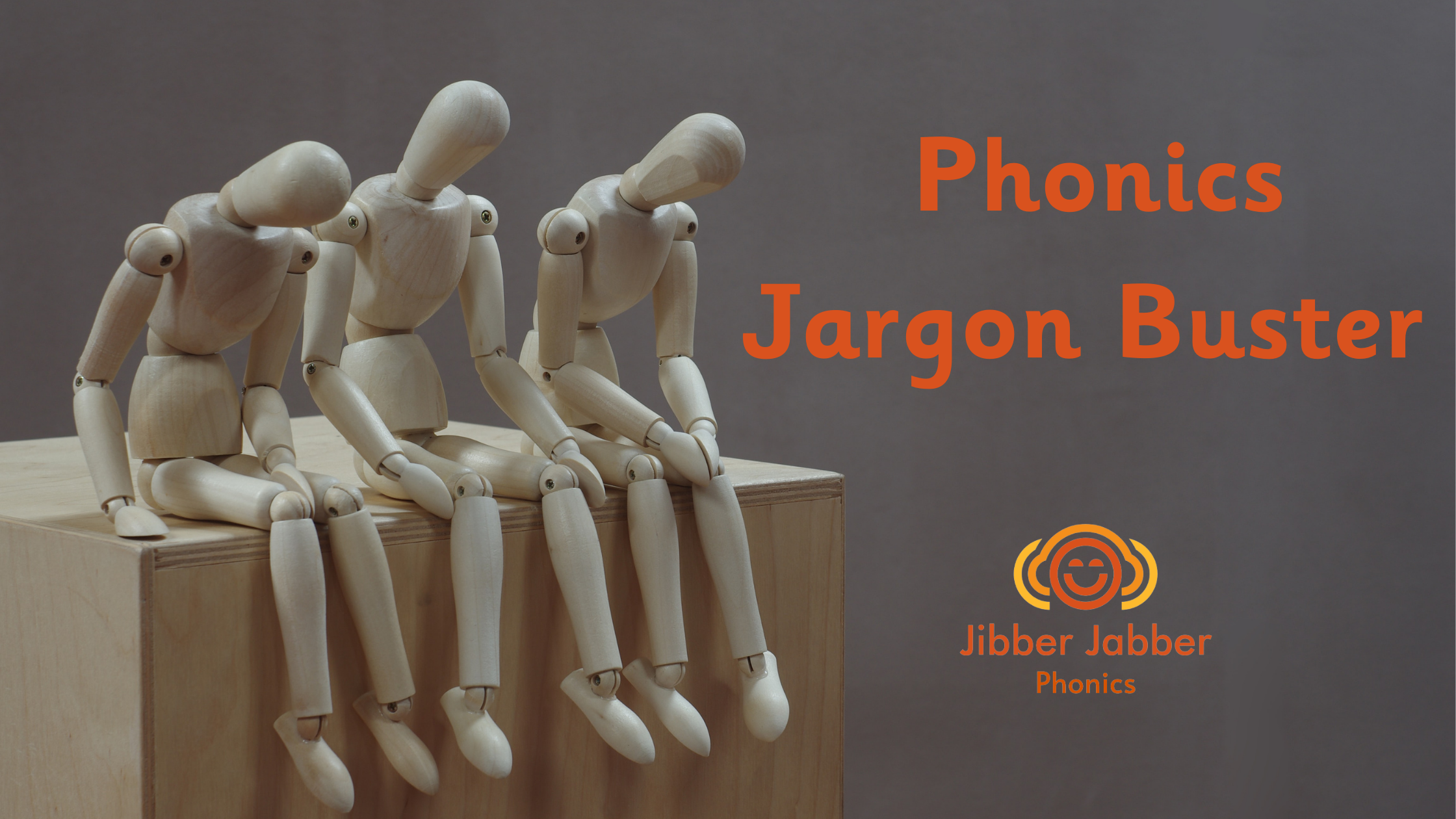Teaching phonics to early learners has become a large part of the classroom environment in recent years but the jargon that goes with it can seem like a foreign language to some of us.
Our little ones come home with worksheets asking us to match the phoneme in words or to practice split digraphs. “What on earth is that!” I hear some say!
Well, like with any specialised subject, those that practice it forget what it was like when they were learning.
The Jargon
I want to clear up some of the words connected to phonics. Commonly used phrases might leave you feeling lost and in the dark. I want to give you a quick overview of terms used so that you are familiar with them.
Here are the most common phrases used.
Phoneme
a letter sound. It’s the smallest unit of sound. There are 42 in the Jolly Phonics programme.
Grapheme
letter formation, what it looks like. It’s the written form of a phoneme.
Decodable
words that can be sounded out with the learnt phonemes. From Group 1 letter, /s/ /a/ /t/ /p/ /i/ /n/. A decodable word would be ‘sat’, ‘pin’, ‘tap’, ‘assistant’.

CVC Words
Consonant, vowel, consonant. These can be simple three letter words that are decodable. Words like sit, get, bed.
Digraphs
two letters that make a single sound. There are two types,
consonants digraphs include ch, ck, sh, th, wh or
vowel digraphs include ai, ee, ie, oa, ue, the names of the vowels made with two letters. Click here for a song to help your learners with long and short vowel sounds.
Split Digraphs
A split digraph also contains two vowels (a_e, e_e, i_e, o_e and u_e) but they are split by a consonant. You might know it as ‘magic e’ as the letter ‘e’ changes the vowel from the sound to the name. The makes the short sounds long. Click here for a great song that helps with the Magic E.
- There are split digraphs to learn
i_e as in time
a_e as in cake
o_e as in joke
e_e as in theme
u_e as in tube
Trigraphs
three letters-one sound. igh
High Frequency Words
these are words that occur most often in books and stories. They can be both decodable /and/ /see/ /look/ or tricky words where part of the word is decodable /she/ /all/.
It’s a need to know basis
The jargon connected with phonics is only for teachers and parents to be aware of. They are not important for learners. Kids don’t need to know that “now we are going to learn the digraph /ar/.
We as teachers need to know it only because this jargon is used in some of the material that we might be using.
With that said, I hope you have found this quick intro to phonics jargon useful. Now when you see them in worksheets and books they won’t be foreign to you.
My name is Vicky, and I am an accredited Jolly Phonics trainer. I have been teaching for 10 years now and I give early year teachers a simple phonics system so that they can avoid confusion, save time on planning, and see amazing results for their students.
Thanks for reading this and please let me know if there is anything else I can help you with when it comes to teaching phonics. Please keep teaching phonics in your lessons. It really makes a difference to your learners no matter how big or small your phonics lessons are.


Good day! I just wish to give you a huge thumbs up for your excellent information you have got here on this post. I am coming back to your blog for more soon. Good day! I just wish to give you a huge thumbs up for your excellent information you have got here on this post. I am coming back to your blog for more soon. נערות ליווי ברמלה
Thank you for your comments. I really appreciate the thumbs up. Looking forward to hearing from you again.